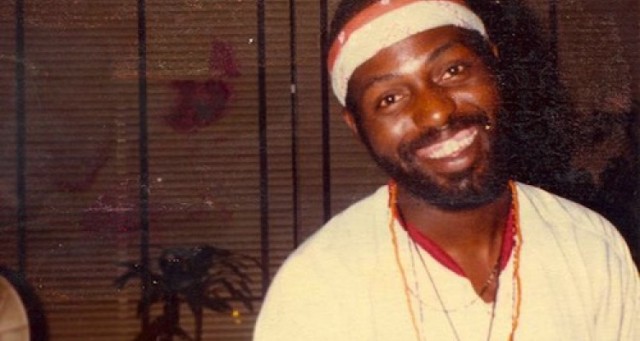The picture of old-school DJing is someone hauling around a crate of records. Frankie Knuckles, the house pioneer, was playing The Warehouse in Chicago and touring with reels of tapes. Remixing was something done with a razor blade.
The saddening news has arrived that “godfather of house” Frankie Knuckles has died at the age of 59. His friend and collaborator David Morales shared the news via Twitter late Tuesday. (See Ben Rogerson’s report in MusicRadar, which comments a bit on the origins of Jamie Principle’s Your Love.) The man most associated with Chicago house music actually was born in the Bronx and cut his teeth DJing in New York City. But it was his instrumental role in the the evolution of Chicago house – the DJ scene, the records that were released, the connections between people at The Warehouse (hence, “house music”), and later his own venue Power Plant – that secured a place in history. And then, there was a second act that topped even that. In the 90s, his Def Classic Mixes and (with Morales) Def Mix Productions turned out still more hits. Knuckles is the rare dance music creator with both a Grammy and a Chicago street to his name.

Frankie Knuckles plays ADE 2012 at the Sugar Factory. Photo (CC-BY) Ukrainian house music producer deepstereo (Sergey) – another artist inspired by Knuckles.
While he will be remembered today surely for his legacy in vinyl records, today’s entire dance music and electronic music scene owes some debt to the way Knuckles has influenced the practice of music making. What he first accomplished with a razor blade and tape has led to techniques in edits and remixes that have become second nature today, and his use of the drum machine is part of the origin of today’s rush for new boxes.
Greg Rule wrote about that for Keyboard Magazine in 1997. Here are some brief excerpts of that chapter from Keyboard Presents the Evolution of Electronic Dance Music, the book I edited for Keyboard and Hal Leonard/Backbeat in 2011:
…the disco drought motivated Frankie to start remixing tracks. “I found myself having to rely on fewer records, and if I liked them, I had to completely re-edit them, or rework them to make them work on my dance floor.”
With tape and a razor blade, Frankie started splicing together new versions of songs in 1979, strategically cutting in breakbeats from other records. Low-tech, yet very effective.
Frankie would soon raise his productions to the next level, incorporating original synth and drum machine tracks. “The single most important instrument that signified the house sound, in my opinion, was and is the Roland [TR-] 909.”
Even the path Kunckles took to adding drum machines is the stuff of legends – he bought his first box from Derrick May. (Thomas Cox wrote a nice piece for Attack Magazine reminding producers that early use of this equipment was because cheap, supposedly toy-like devices were readily available. It’s not a luddite perspective; it’s a reminder of the real history of technology in dance music, and I think a good call to action against gear snobbery and for creative abuse and technological democratization.)
Everything old is new again, and what was true in 1997 seems doubly so in 2014 (though you can even replace the word “house” with “pocket of your jeans”):
Comparing the past to the present, he has encouraging news for start-up dance music artists. “With technology, anybody can set up a studio in their house now, and do it all from there. A lot of these dance records coming out today are done by bedroom producers. But back then, it was all different. I didn’t have the technology, for one. I had a razor blade, a Pioneer reel-to-reel, and spools and spools of recording tape.”
Kunckles also talked in that story how important it was to test out his creations in the club. So, let’s remember Knuckles with his hour-long DJ set for Boiler Room NYC just last year – in the fifth decade of his legendary career as a DJ, still lighting up the dance floor.
To his family and the massive community of friends, we send our deepest regrets. This is a loss many, many artists will feel far and wide.
More listening – hat-tip to De:bug Magazine [German]:
And a must-read article: how a young Frankie Knuckles got arrested for stealing doughnuts as a kid, and somehow wound up changing the course of dance music history in the process – as told by the man himself:
When Frankie Knuckles Met Robert Williams (Again)
And still more:
